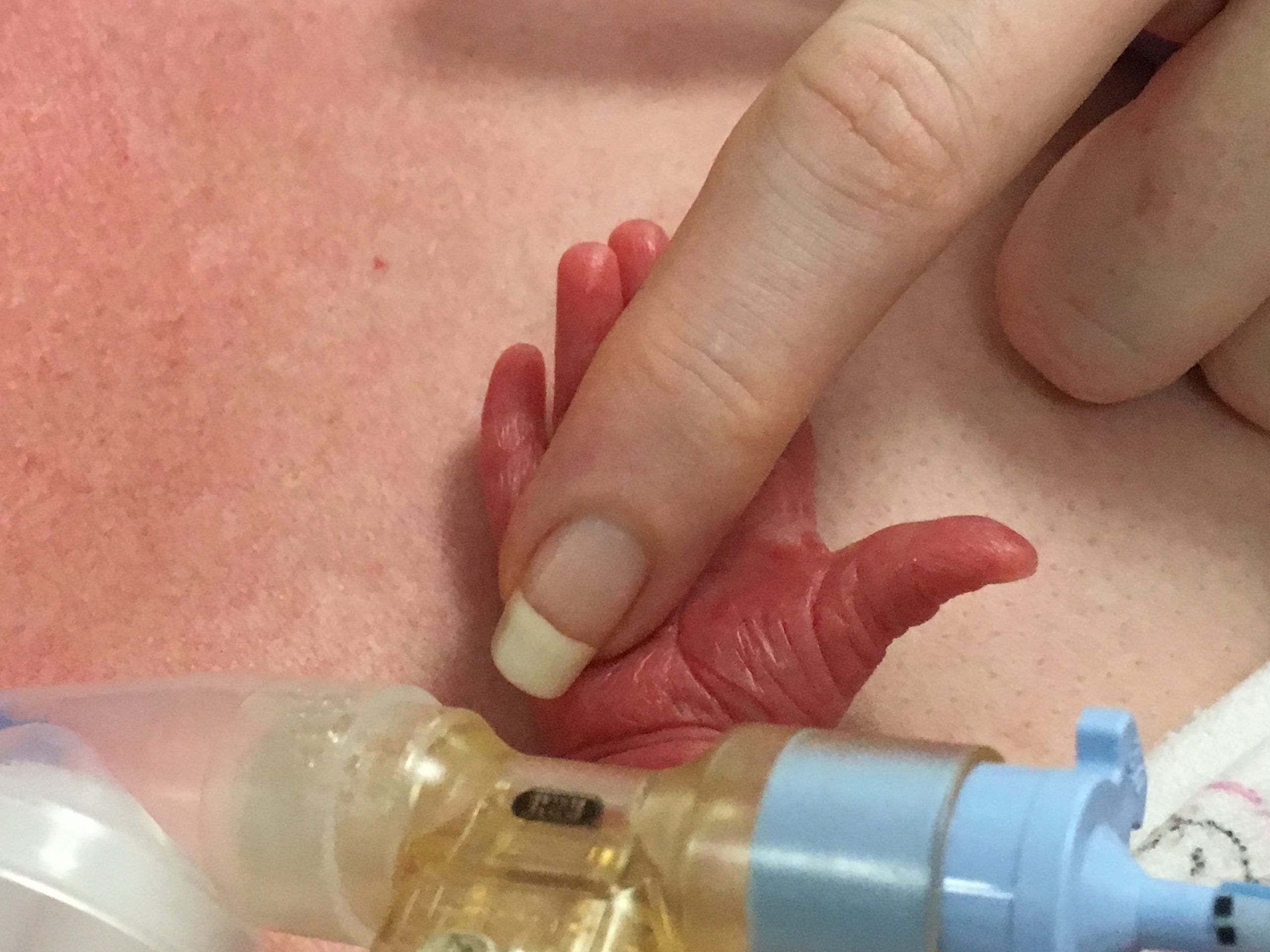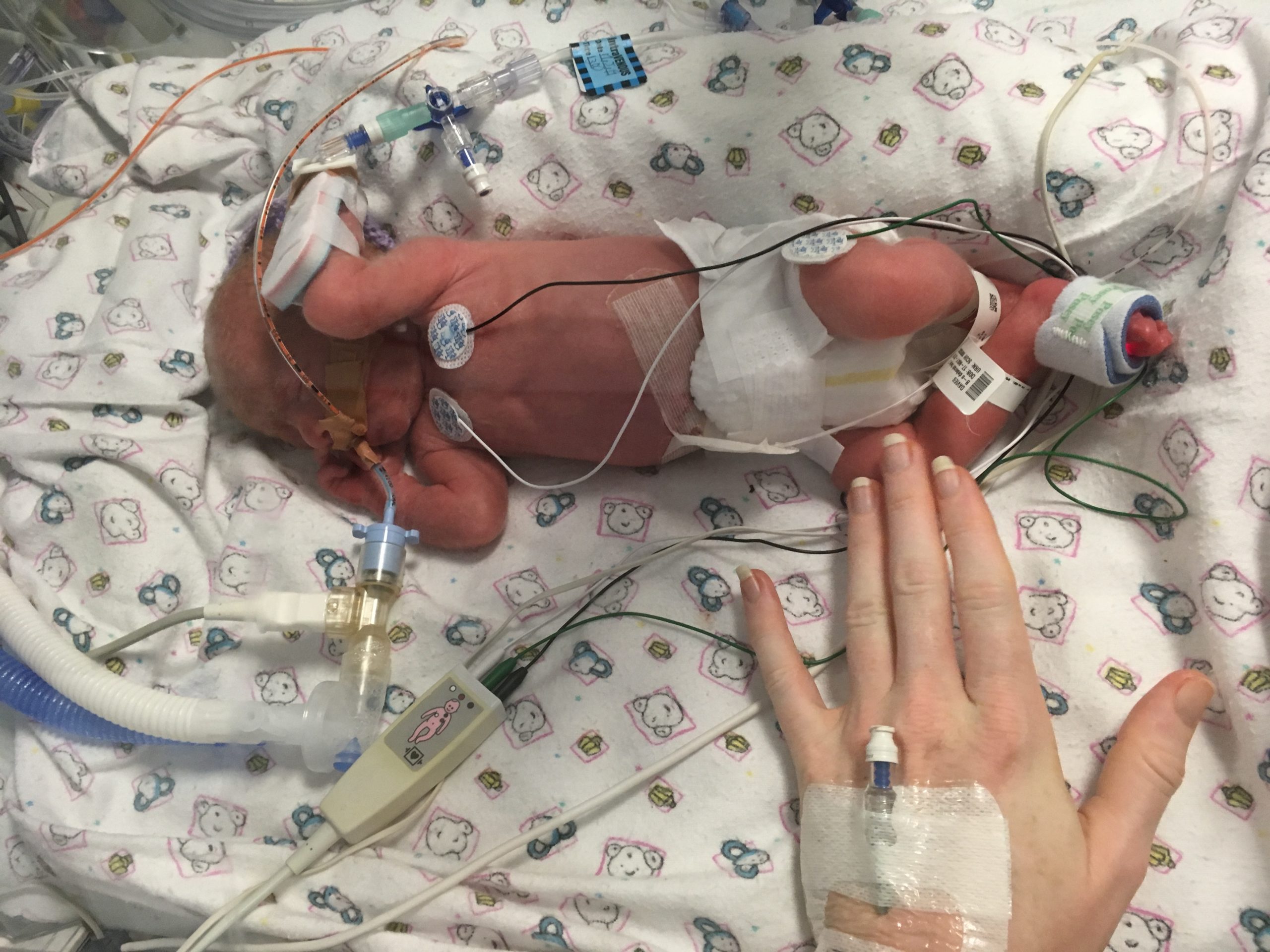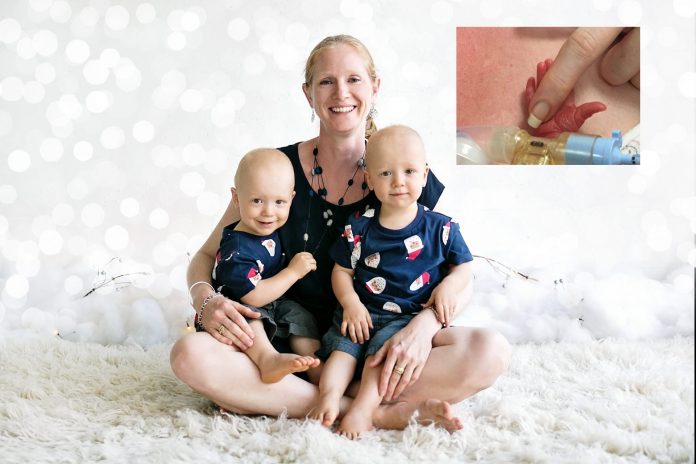Woombye mum Deborah Davies’ twin boys were once so tiny their whole hands were barely the size of her own fingertip.
But today the energetic identical brothers, David and Matthew, are hitting their health milestones and are about to celebrate their second birthday.
The Davies boys were the first premature twins born at Sunshine Coast University Hospital (SCUH) after the expansion of the neonatal unit in 2019 to care for premature babies from 29 weeks gestation.
“Prior to the expansion the neonatal service could care for premature babies born at 34 weeks gestation,” said SCHUH neonatal unit clinical director Dr Lizelle Weber.
“This meant that any unwell babies who required ventilation also had to go to Brisbane.
“We now care for babies who require invasive ventilation for a few days, that is, respiratory support with an invasive breathing tube and mechanical ventilator; and other babies requiring non-invasive respiratory support.”

When doctors told Ms Davies she was a likely to have a premature birth, she was fully expecting to have to transfer to Brisbane because the upgrades to neonatal had not come into effect yet.
“All the talk was that I would need to go to Brisbane weeks prior (to my due date) which I didn’t want to do because I would have to find accommodation and be away from family and friends,” said Ms Davies.
“They kept encouraging me and I kept resisting.”
On May 16th, while at her teaching job, Ms Davies went into sudden labour — and it progressed fast.
But although her twins were only at 29 weeks, Ms Davies was given the unexpected good news that SCUH’s neonatal facility had just opened and she would be able to give birth and have her twins cared for locally.
Her babies were just 1.4kg and 1.45kg and so tiny and underdeveloped when they were born by caesarean on May 17, 2019, that they had to be sustained in a ‘giraffe’ incubator in the neonatal intensive care unit.
Local journalists supporting local people. Help keep independent and fair Sunshine Coast news coming by subscribing to our free daily news feed. All it requires is your name and email. See SUBSCRIBE at the top of this article
For the first six weeks of their lives, Ms Davies says there was “nothing I could do for my children” as her precious infants’ survival depended on machines, tubes and nutrients.
“I would sit in a chair and do skin-on-skin for an hour and then sometimes the next day you couldn’t hold them because they had a dip,” she said.
“I would put my hand in the crib and leave the hospital at 4pm and come home and just collapse.
“I did that until they were about 35-36 weeks and at that point I moved into the hospital into the special care unit and I lived at the hospital from that point.”

From 36 weeks it was a countdown to the anticipated day the family would be able to leave the hospital together which came after they had been there for 60 days.
Soon before they were due to go home, the family graduated to sleeping in the hospital’s special apartment which gives parents the experience of caring for babies in a home environment.
“When you move into the apartment, you know you’re going home. It’s like getting the golden ticket,” said Ms Davies.
Ms Davies said without this service on the Coast, the alternative of commuting or living in Brisbane would have been tiring, expensive and time-consuming.
“You can stay in a hotel but financially you can’t do that for two-and-a-half months,” she said.
“Maybe you can drive backwards and forwards but that’s four hours on the Bruce Highway.”
Dr Weber said the hospital’s entire model of care changed so at least one of the parents could stay at the bedside 24/7.
“Every cot space in the unit has a single bed that converts into a couch during the day and a bed at night for one of the parents to stay,” she said.
SCUH also implemented a Maternal Fetal Medicine service for expectant mums with complications who require specialist treatment such as tertiary level ultrasounds and procedures (such as amniocentesis).
“It’s been an amazing journey, and it has been really fulfilling for the staff to be part of the journey of these very vulnerable premature babies and their families,” Dr Weber said.
“In the past 30 years there have been incredible advances in the field of newborn and premature care, with huge improvements for neurodevelopmental outcomes.”
Ms Davies said she felt so lucky that today her boys were “ticking all the boxes” with their health and milestones.
“They are full of life, they laugh all the time; they’re the best of friends,” she said.
“I’m still in touch with some of the midwives who were involved in the care of the boys and they’re so interested in how they’re progressing.
“The heart these people have is so big and expansive.
“As parents we can only do so much without the caring of doctors and midwives and nurses – these ladies and men are exceptional people.
“The concept of leaving a child in hospital and walking away can only be done because you know these precious little things are in the care of such phenomenal people.”





